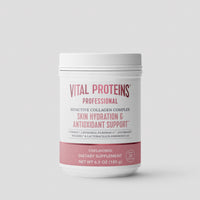An estimated 60% of people purchase organic food occasionally and 20% frequently purchase organic foods. The organic sector has experienced growth for years and the number of certified organic operations in the U.S. is growing rapidly. With this much of the population interested in organic food, it’s important for consumers to know exactly what it means. Keep reading for answers to your most frequently asked "organic vs. non-organic" questions.

does organic mean chemical and pesticide-free?
One of the main motivators to buy organic is having food that is free of chemicals and pesticides. However, this is not always true. In fact, many organic farmers may use a variety of chemicals that are derived from natural sources which raises the question of whether or not it’s less harmful.
To bring transparency to this, theUnited States Department of Agriculture (USDA) has a department dedicated to sampling over 100 different fruits and vegetables and analyzing them for pesticides and metabolites. This department also tests both conventional and organic pesticides. Their findings? For the past 25 years, 99% of the foods tested have shown residue levels well below the legal limits set by the United States Environmental Protection Agency.
is organic healthier?
A landmark study by Stanford Health looked at 17 studies in humans and 223 studies of nutrient and contaminant levels and concluded there is no strong evidence that organic foods are significantly more nutritious than conventional foods. However, the study did say that consumption of organic foods may reduce exposure to pesticide residues and antibiotic-resistant bacteria.

what type of criteria do organic foods have to meet?
A 2017 survey showed that 99% of the organic purchasers surveyed expressed confidence in their understanding of the organic label. Yet, the data showed a significant gap in their knowledge and the truth. The truth is that organic crop and animal agriculture farmers have to follow strict guidelines to be able to call their product organic.
Foods that have the term "organic" on them must meet specific criteria because of the legal implications it holds. According to the USDA, organic meat, poultry, eggs and dairy products come from animals that are given no antibiotics or growth hormones. Organic plant foods are produced without using most conventional pesticides, fertilizers made with synthetic ingredients or sewage sludge, bioengineering or ionizing radiation. A government-approved certifier must inspect the farm to ensure these standards are met.
are there different levels of organic?
There are currently four levels of organic claims for food outlined by the USDA:
- 100% Organic: Products that are completely organic or made of only organic ingredients qualify for this claim and a USDA Organic seal.
- Organic: Products in which at least 95% of its ingredients are organic qualify for this claim and a USDA Organic seal. Up to 5% of the ingredients may be non-organic agricultural products.
- Made with Organic Ingredients: These are food products in which at least 70% of ingredients are certified organic. The USDA organic seal cannot be used but "made with organic ingredients" may appear on its packaging.
- Specified organic ingredients: Specific organic ingredients may be listed in the ingredient statement of products containing less than 70% organic contents, for example, “Ingredients: water, barley, beans, organic tomatoes, salt.”
what else do I need to know?
Becoming familiar with the label, and what it means, empowers consumers to make informed food decisions. While there are many marketing claims that aren’t regulated, the term “organic” has very specific guidelines that must be adhered to during the production process. But the matter is not always black and white. No matter what form of food you are getting, eating a diet rich in a variety of fruits, vegetables and whole grains is important for long term health and vitality. The choice is yours! (Note: We recommend discussing your health goals with your licensed healthcare professional.)














